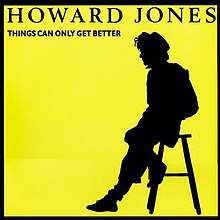
John Howard Jones is a British musician, singer and songwriter. He had ten top 40 hit singles in the UK between 1983 and 1986, six of which reached the top ten, including "Like to Get to Know You Well", "What Is Love?", "New Song", and "Things Can Only Get Better". His 1984 album Human's Lib reached number one on the UK Albums Chart. Around the world, Jones had 15 top 40 hit singles between 1983 and 1992. The 1986 hit single "No One Is to Blame" reached No. 4 on the US charts. Four others placed in the US top 20.

White Lion was a Danish-American glam metal band that was formed in New York City in 1983 by Danish vocalist/guitarist Mike Tramp and Italian-American guitarist Vito Bratta. Mainly active in the 1980s and early 1990s, they released their debut album Fight to Survive in 1985. The band achieved success with their No. 8 hit "Wait" and No. 3 hit "When the Children Cry" from their second album, the double platinum selling Pride. The band continued their success with their third album, Big Game which achieved Gold status and their fourth album Mane Attraction which included a supporting tour. White Lion disbanded in 1992 and not long afterwards, their first compilation album, The Best of White Lion was released.

"Master of Puppets" is a thrash metal song by American metal band Metallica, released on July 2, 1986, as the only single from the album of the same name. It was also issued as a promo single in the US by Elektra Records.
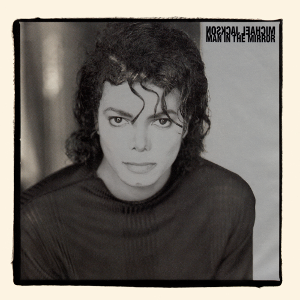
"Man in the Mirror" is a song by the American singer-songwriter Michael Jackson. It was written by Glen Ballard and Siedah Garrett and produced by Jackson and Quincy Jones. It was released in January 1988, as the fourth single from Jackson's seventh solo album, Bad (1987).

"Cities in Dust" is a song by English rock band Siouxsie and the Banshees from their album Tinderbox (1986). It was released on 18 October 1985 as the album's lead single.
"The Lady Is a Tramp" is a show tune from the 1937 Rodgers and Hart musical Babes in Arms, in which it was introduced by former child star Mitzi Green. This song is a spoof of New York high society and its strict etiquette and phony social pretensions. It has become a popular music standard.
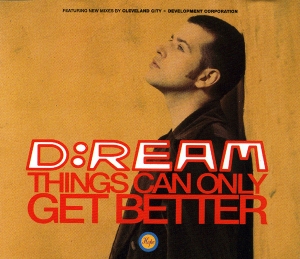
"Things Can Only Get Better" is a song by Northern Irish musical group D:Ream, released in 1993 by Magnet Records and FXU as the second single from the group's debut album, D:Ream On Volume 1 (1993). It was written by Peter Cunnah and Jamie Petrie, and was a sleeper hit.

"More Life in a Tramps Vest" is the second single released by Welsh rock band Stereophonics. The song is taken from the band's debut album, Word Gets Around (1997), and was released on 19 May 1997. It reached number 33 on the UK Singles Chart. The song is about life from the view of someone working on a market stall in Aberdare, whilst all the shops were closing down. The single's B-side, "Raymond's Shop", is featured on Stereophonics' greatest hits compilation album Decade in the Sun.
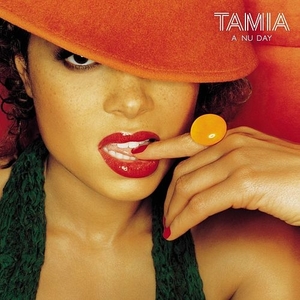
A Nu Day is the second studio album by Canadian recording artist Tamia. It was released by Elektra Records on October 10, 2000, following her transition from Qwest Records. A less ballad-driven collection of songs and more progressive approach than her debut effort, Tamia worked with a smaller number of songwriters and producers on the album, including Dallas Austin, Shep Crawford, Missy Elliott, Bink!, Errol "Poppi" McCalla, and Jazz Nixon, some of whom would become frequent collaborators on subsequent albums. As with Tamia, a cover version, DeBarge's 1983 single "Love Me in a Special Way", was also recorded for the album.
"No Charge" is a country music song, written by songwriter Harlan Howard. It was first recorded by country singer Melba Montgomery, whose 1974 version was a #1 country hit in both the US and Canada, as well as making #39 on the US pop charts. In the UK, the song is associated with J. J. Barrie, whose 1976 version was a #1 UK hit.

Fight to Survive is the debut album by the American-Danish glam metal band White Lion, released by Victor Records in Japan in 1985. The album charted at number 151 on the Billboard 200.

Dream into Action is the second studio album by British pop musician Howard Jones. It was released in March 1985 and reached No. 2 in the UK Album Charts. The album also reached the top ten in the U.S. The album achieved a gold certification in the UK and platinum status in the US and Canada.
Cheryl Elizabeth Gamble, better known by her stage name Coko, is an American singer-songwriter best known as the lead singer of the R&B vocal trio Sisters With Voices (SWV). Aside from her R&B career, Gamble also has a solo gospel career. As a member of SWV, Coko has sold 10 million records in the US, and 25 million records worldwide, and is a four-time Grammy Award nominee.

Melba Joyce Montgomery is an American country music singer and songwriter. She is known for a series of duet recordings made with George Jones, Gene Pitney and Charlie Louvin. She is also a solo artist, having reached the top of the country charts in 1974 with the song, "No Charge". Born in Tennessee but raised in Alabama, Montgomery had a musical upbringing. Along with her two brothers, she placed in a talent contest which brought her to the attention of Roy Acuff. For several years she toured the country as part of his band until she signed with United Artists Records in 1963.
"Anything Goes" is a song written by Cole Porter for his 1934 musical of the same name. Many of the lyrics include humorous references to figures of scandal and gossip from Depression-era high society.

"New Song" is the debut single by musician Howard Jones, released in August 1983. The single reached number three on the UK Singles Chart, spending 20 weeks in the Top 75. On the UK seven-inch single, the song's lyrics are printed in a spiral on the A-side label, with all the credits printed on the B-side. It was released in the US in early 1984, peaking at #27 on the Billboard Hot 100 chart. The track later appeared on Jones' debut album Human's Lib.
"Like to Get to Know You Well" is a song by the English musician Howard Jones released as a single in 1984. It reached number 4 on the UK Singles Chart, and was subsequently included on his remix album The 12" Album. It was later included as a bonus track on CD versions of Jones' second studio album, Dream Into Action (1985).

"Gypsys, Tramps & Thieves" is a song by American singer and actress Cher from her 1971 seventh studio album Chér. Kapp Records, a division of MCA Records, released it as the album's lead single on September 1, 1971. The song was written by Bob Stone, and produced by Snuff Garrett. Since Sonny Bono's first attempts at reviving Cher's recording career had been unsuccessful, the record company recruited Garrett as her producer and he chose Stone to write a song specifically for Cher, in order to cater to an adult audience.
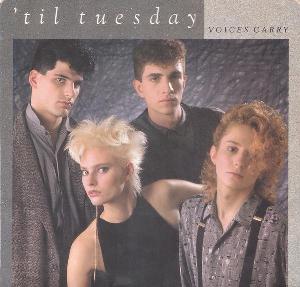
"Voices Carry" is a song by the American rock band 'Til Tuesday. It was produced by Mike Thorne for the band's debut studio album, Voices Carry (1985). The accompanying music video, directed by D.J. Webster, received wide exposure on MTV and positive reactions from critics. It was nominated for numerous awards and is thought to be the reason behind the song's success. It was released in North America in March 1985. "Voices Carry" became the band's highest-charting single and their only top ten hit in the U.S., peaking at number eight on the Billboard Hot 100. Internationally it reached the top twenty in Canada and Australia.

"Wake Up (Next to You)" is a song written by British rock musician Graham Parker and performed by Graham Parker and the Shot. Inspired by Smokey Robinson, the song was crucial in convincing Elektra Records to allow Parker and producer William Wittman to record a full album. The song is also notable for Parker's breathy singing and its lush arrangement.
